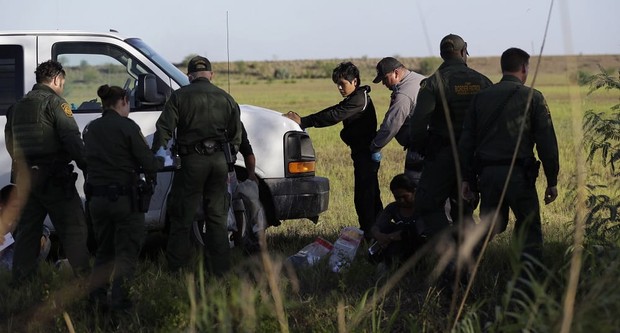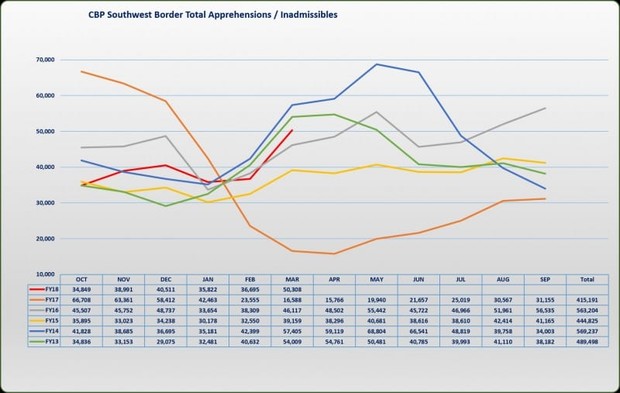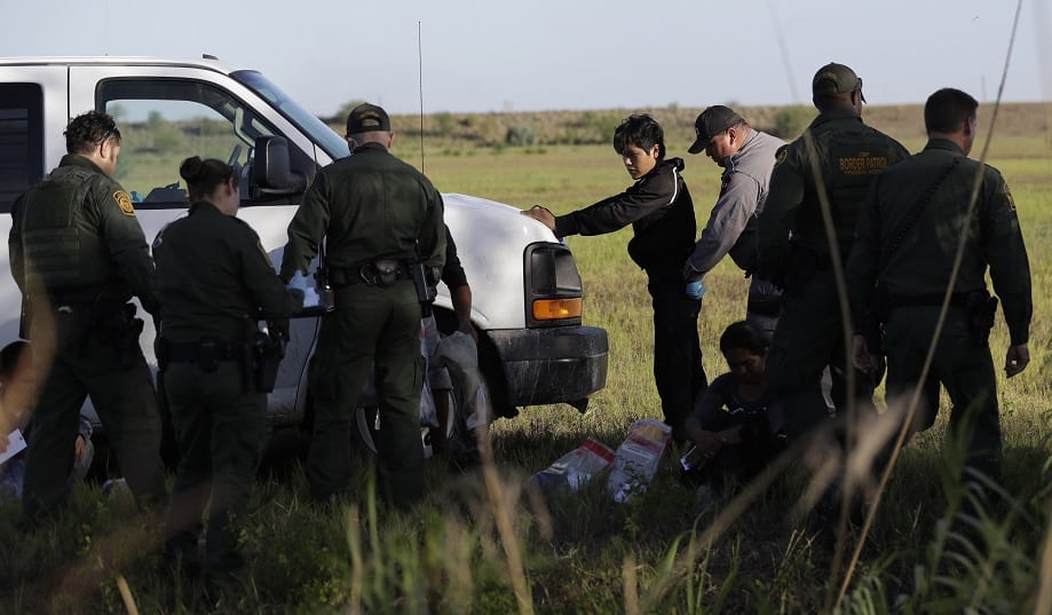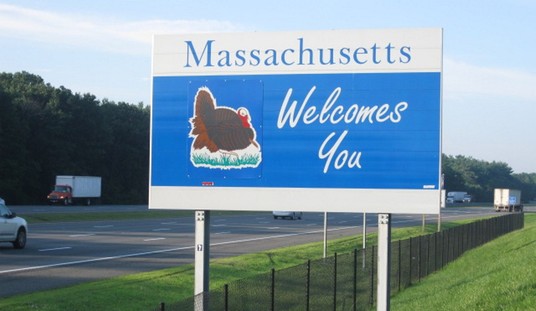
In this Aug. 11, 2017, photo, immigrants suspected of crossing into the United States illegally along the Rio Grande near Granjeno, Texas, are held by U.S. Customs and Border Patrol agents. After hitting a 17-year low shortly after President Donald Trump took office, the numbers of people coming over the border have risen four months in a row. (AP Photo/Eric Gay)
A couple of days ago, President Trump announced he was federalizing some National Guard units and moving them to the border with Mexico.
The reason for that decision became very apparent yesterday with the release of data for illegal alien apprehensions on the southern border in March 2018.
During the month of March CBP saw a 37 percent increase overall when compared to February, but a 203 percent increase compared to March 2017.
The number of Family Units increased by 49 percent and the number of unaccompanied children (UAC) increased by 41 percent compared to last month.

The graph shows that apprehensions have surged back to FY2013/2014 levels. A word here about the graph. We know that the Border Patrol is more aggressive in apprehending illegals now than it was in the past. So, to a great extent, the higher number reflects them doing a better job. And we know that this surge is a seasonal one driven by demands for field hands in California. Having said that, you sort of have to look at FY2017 as a baseline for comparable data and it is clear that the hiatus in illegal immigration that Trump’s election created is over and the new risks are now baked into the decision.
Today, Attorney General Jeff Sessions announced a change in Justice policy to support the border security mission:
Attorney General Jeff Sessions today notified all U.S. Attorney’s Offices along the Southwest Border of a new “zero-tolerance policy” for offenses under 8 U.S.C. § 1325(a), which prohibits both attempted illegal entry and illegal entry into the United States by an alien. The implementation of the Attorney General’s zero-tolerance policy comes as the Department of Homeland Security reported a 203 percent increase in illegal border crossings from March 2017 to March 2018, and a 37 percent increase from February 2018 to March 2018—the largest month-to-month increase since 2011.
“The situation at our Southwest Border is unacceptable. Congress has failed to pass effective legislation that serves the national interest—that closes dangerous loopholes and fully funds a wall along our southern border. As a result, a crisis has erupted at our Southwest Border that necessitates an escalated effort to prosecute those who choose to illegally cross our border,” said Attorney General Jeff Sessions. “To those who wish to challenge the Trump Administration’s commitment to public safety, national security, and the rule of law, I warn you: illegally entering this country will not be rewarded, but will instead be met with the full prosecutorial powers of the Department of Justice. To the Department’s prosecutors, I urge you: promoting and enforcing the rule of law is vital to protecting a nation, its borders, and its citizens. You play a critical part in fulfilling these goals, and I thank you for your continued efforts in seeing to it that our laws—and as a result, our nation—are respected.”
What Sessions is doing is directing US attorneys in the southern tier states to start prosecuting people for illegal entry into the United States. In the past, apprehended illegals, if Mexicans, were sent back across the border with little delay. Sometimes they would be caught several times in the same night. Prosecution was reserved for people with a criminal record and for human traffickers, aka coyotes.
The new policy has some interesting ramifications. Is it physically possible to prosecute 30K illegals? I’d suspect that you’ll see a federal version of “bum’s court” that you find in big cities where people will be found guilty and released with a suspended sentence. What this does is increase the level of risk for a second border crossing. If you are apprehended then, you are looking at prison time. Plus, having a federal conviction prevents you from ever immigrating legally.
I’d suggest that one mission the mobilized National Guard units might perform is the running of detention centers. Such centers are not a “law enforcement” activity. In fact, when Cuba flushed its jails during the Mariel boatlift, it was federal troops, from places like the 82d Airborne Division, who staffed the detention centers.













Join the conversation as a VIP Member